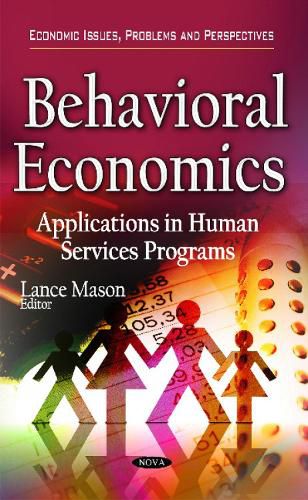Readings Newsletter
Become a Readings Member to make your shopping experience even easier.
Sign in or sign up for free!
You’re not far away from qualifying for FREE standard shipping within Australia
You’ve qualified for FREE standard shipping within Australia
The cart is loading…






Insights from behavioural economics, which combines findings from psychology and economics, suggest that a deeper understanding of decision-making and behaviour could improve human services program design and outcomes. Research has shown that small changes in the environment can facilitate behaviours and decisions that are in people’s best interest. However, there has been relatively little exploration of the potential application of this science to complex, large-scale human services programs. This book, from the early stages of OPRE’s Behavioural Interventions to Advance Self-Sufficiency (BIAS) project, provides an overview of behavioural economics, presents an approach to applying behavioural economics to social programs, shares insights from three case studies in the BIAS project, and concludes with some early lessons that have emerged from the work and next steps for the BIAS project.
$9.00 standard shipping within Australia
FREE standard shipping within Australia for orders over $100.00
Express & International shipping calculated at checkout
Insights from behavioural economics, which combines findings from psychology and economics, suggest that a deeper understanding of decision-making and behaviour could improve human services program design and outcomes. Research has shown that small changes in the environment can facilitate behaviours and decisions that are in people’s best interest. However, there has been relatively little exploration of the potential application of this science to complex, large-scale human services programs. This book, from the early stages of OPRE’s Behavioural Interventions to Advance Self-Sufficiency (BIAS) project, provides an overview of behavioural economics, presents an approach to applying behavioural economics to social programs, shares insights from three case studies in the BIAS project, and concludes with some early lessons that have emerged from the work and next steps for the BIAS project.